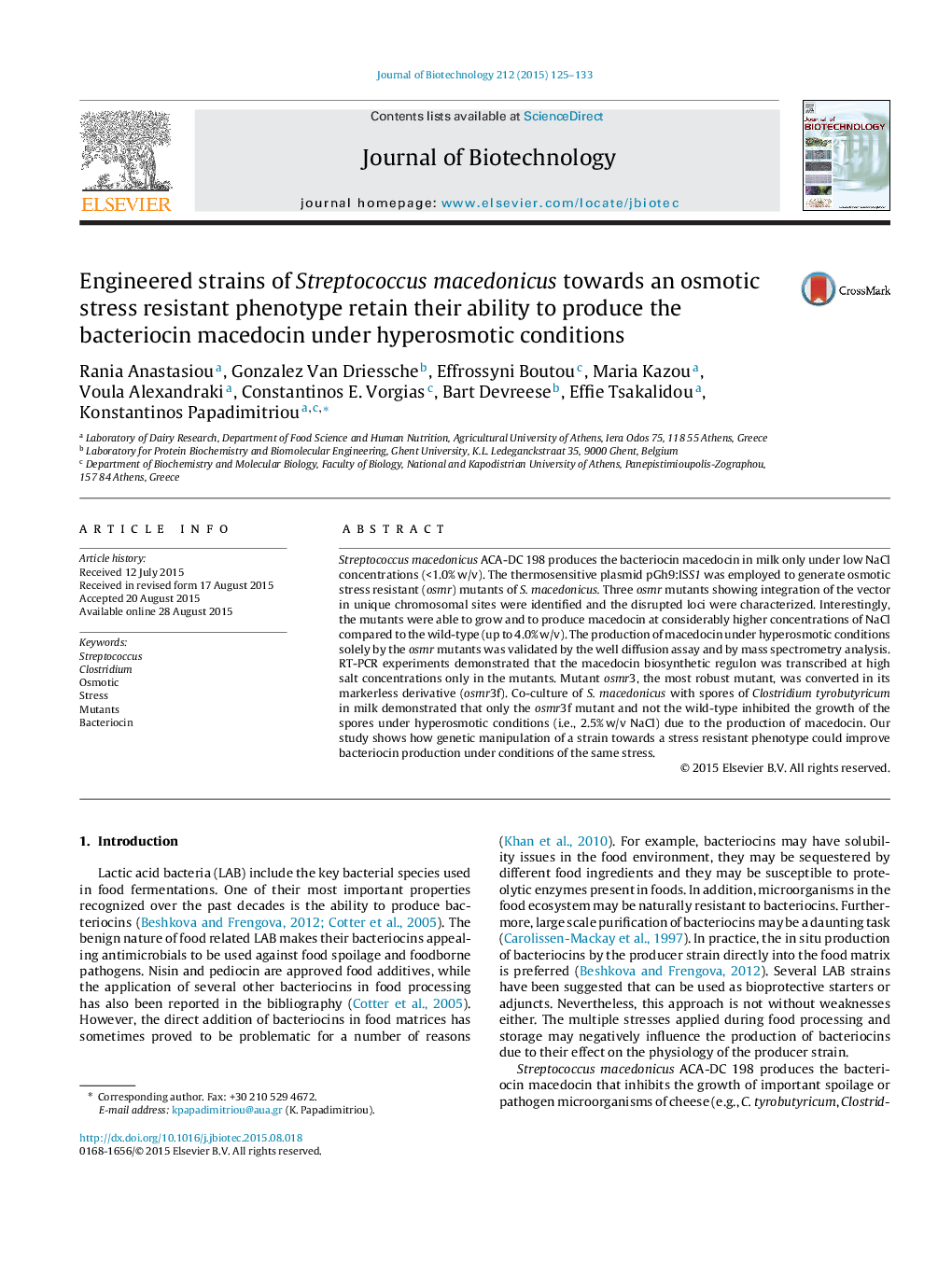| Article ID | Journal | Published Year | Pages | File Type |
|---|---|---|---|---|
| 6490932 | Journal of Biotechnology | 2015 | 9 Pages |
Abstract
Streptococcus macedonicus ACA-DC 198 produces the bacteriocin macedocin in milk only under low NaCl concentrations (<1.0%Â w/v). The thermosensitive plasmid pGh9:ISS1 was employed to generate osmotic stress resistant (osmr) mutants of S. macedonicus. Three osmr mutants showing integration of the vector in unique chromosomal sites were identified and the disrupted loci were characterized. Interestingly, the mutants were able to grow and to produce macedocin at considerably higher concentrations of NaCl compared to the wild-type (up to 4.0%Â w/v). The production of macedocin under hyperosmotic conditions solely by the osmr mutants was validated by the well diffusion assay and by mass spectrometry analysis. RT-PCR experiments demonstrated that the macedocin biosynthetic regulon was transcribed at high salt concentrations only in the mutants. Mutant osmr3, the most robust mutant, was converted in its markerless derivative (osmr3f). Co-culture of S. macedonicus with spores of Clostridium tyrobutyricum in milk demonstrated that only the osmr3f mutant and not the wild-type inhibited the growth of the spores under hyperosmotic conditions (i.e., 2.5%Â w/v NaCl) due to the production of macedocin. Our study shows how genetic manipulation of a strain towards a stress resistant phenotype could improve bacteriocin production under conditions of the same stress.
Related Topics
Physical Sciences and Engineering
Chemical Engineering
Bioengineering
Authors
Rania Anastasiou, Gonzalez Van Driessche, Effrossyni Boutou, Maria Kazou, Voula Alexandraki, Constantinos E. Vorgias, Bart Devreese, Effie Tsakalidou, Konstantinos Papadimitriou,
